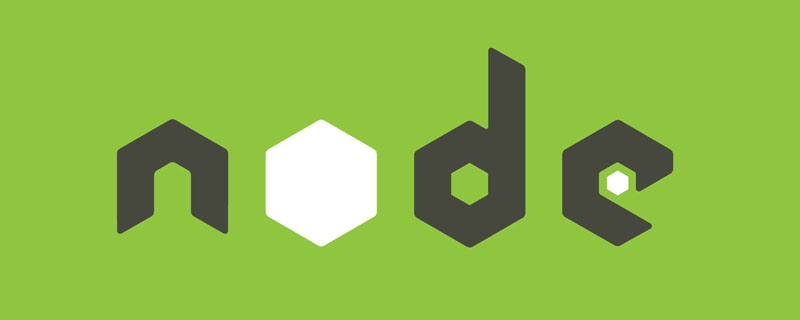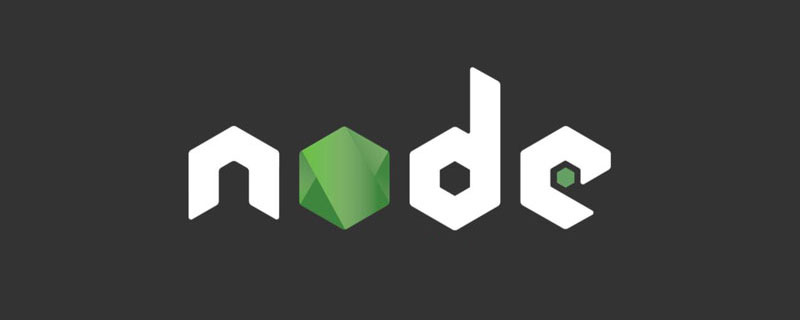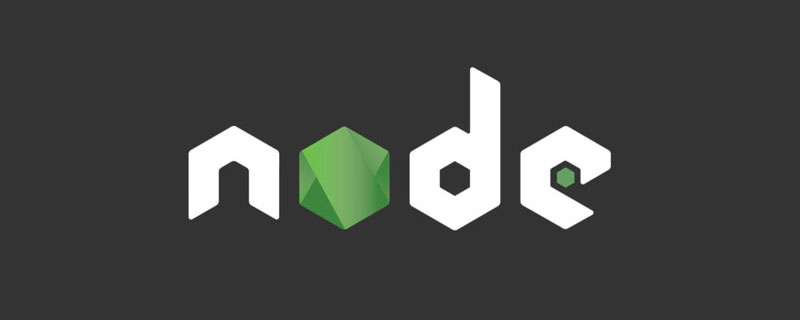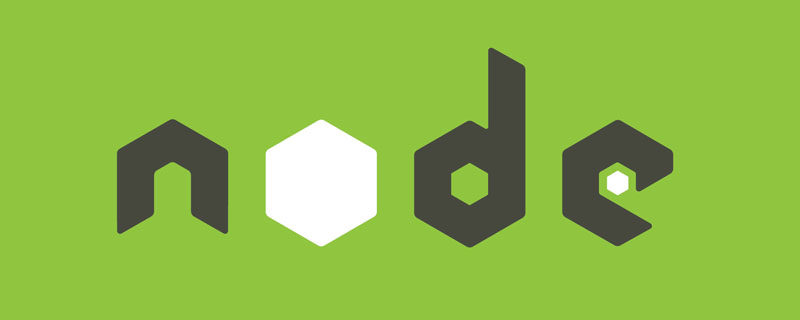koa is a web development framework based on the Node.js platform, relying on "node v7.6.0" or ES2015 and higher versions and async method support; Koa does not bundle any middleware, but provides a A set of elegant methods to help users write server-side applications quickly and happily.

The operating environment of this tutorial: windows7 system, nodejs version 12.19.0, DELL G3 computer.
Koa -- the next generation web development framework based on the Node.js platform
Koa is a new web framework, created by the original team behind Express, dedicated to Designed to be a smaller, more expressive, and more robust cornerstone in web application and API development. By leveraging async functions, Koa helps you discard callback functions and greatly enhance error handling. Koa does not bundle any middleware, but provides a set of elegant methods to help you write server-side applications quickly and happily.
Koa was born to solve some design flaws of Express. Its middleware can be written through async function. await next() can interrupt the execution of the middleware and wait until all subsequent middleware is executed before executing it. The onion model can be implemented through await next().
Another feature is the simplified processing of request and response. Both of them are mounted on ctx for use. The returned content can also be used through direct assignment, such as: ctx.response.body = fs .createStream('really_large.xml').
Moreover, Koa has cut off the routing function, which is implemented through middleware. This is a minimalist idea of a microkernel.
Core functions (Koa’s documentation):
- More extreme request/response simplification than Express, such as:
- ctx. status = 200
- ctx.body = 'hello node'
- Middleware implemented using async function.
- Have the ability to "pause execution".
- It also conforms to the onion model in asynchronous situations.
- Streamline the kernel and move all extra functions to middleware.
Installation
Koa depends on node v7.6.0 or ES2015 and higher and async method support.
You can use your favorite The version manager quickly installs supported node versions:
$ nvm install 7 $ npm i koa $ node my-koa-app.js
Use Babel to implement the Async method
To use the async method in node
require('babel-register'); // 应用的其余 require 需要被放到 hook 后面 const app = require('./app');
To parse and compile async methods, you should at least have the transform-async-to-generator or transform-async-to-module-method plugin.
For example , in your .babelrc file, you should have:
{
"plugins": ["transform-async-to-generator"]
}You can also use the target parameter "node": "current" of the env preset instead.
Application
Koa application is an object that contains a set of middleware functions, which are organized and executed in a stack-like manner. Koa is similar to many other middleware systems you may have encountered, such as Ruby's Rack, Connect, etc. However, a key design point is to provide high-level "syntactic sugar" in its low-level middleware layer. This improves interoperability, robustness, and makes writing middleware more enjoyable.
This includes methods for common tasks such as content negotiation, cache cleaning, proxy support, and redirection. Despite providing quite a lot of useful methods Koa still maintains a small size because there is no middleware bundled.
Required hello world application:
const Koa = require('koa');
const app = new Koa();
app.use(async ctx => {
ctx.body = 'Hello World';
});
app.listen(3000);For more node-related knowledge, please visit: nodejs tutorial! !
The above is the detailed content of What is the relationship between koa and node?. For more information, please follow other related articles on the PHP Chinese website!
 node、nvm与npm有什么区别Jul 04, 2022 pm 04:24 PM
node、nvm与npm有什么区别Jul 04, 2022 pm 04:24 PMnode、nvm与npm的区别:1、nodejs是项目开发时所需要的代码库,nvm是nodejs版本管理工具,npm是nodejs包管理工具;2、nodejs能够使得javascript能够脱离浏览器运行,nvm能够管理nodejs和npm的版本,npm能够管理nodejs的第三方插件。
 Vercel是什么?怎么部署Node服务?May 07, 2022 pm 09:34 PM
Vercel是什么?怎么部署Node服务?May 07, 2022 pm 09:34 PMVercel是什么?本篇文章带大家了解一下Vercel,并介绍一下在Vercel中部署 Node 服务的方法,希望对大家有所帮助!
 node爬取数据实例:聊聊怎么抓取小说章节May 02, 2022 am 10:00 AM
node爬取数据实例:聊聊怎么抓取小说章节May 02, 2022 am 10:00 AMnode怎么爬取数据?下面本篇文章给大家分享一个node爬虫实例,聊聊利用node抓取小说章节的方法,希望对大家有所帮助!
 node导出模块有哪两种方式Apr 22, 2022 pm 02:57 PM
node导出模块有哪两种方式Apr 22, 2022 pm 02:57 PMnode导出模块的两种方式:1、利用exports,该方法可以通过添加属性的方式导出,并且可以导出多个成员;2、利用“module.exports”,该方法可以直接通过为“module.exports”赋值的方式导出模块,只能导出单个成员。
 安装node时会自动安装npm吗Apr 27, 2022 pm 03:51 PM
安装node时会自动安装npm吗Apr 27, 2022 pm 03:51 PM安装node时会自动安装npm;npm是nodejs平台默认的包管理工具,新版本的nodejs已经集成了npm,所以npm会随同nodejs一起安装,安装完成后可以利用“npm -v”命令查看是否安装成功。
 node中是否包含dom和bomJul 06, 2022 am 10:19 AM
node中是否包含dom和bomJul 06, 2022 am 10:19 AMnode中没有包含dom和bom;bom是指浏览器对象模型,bom是指文档对象模型,而node中采用ecmascript进行编码,并且没有浏览器也没有文档,是JavaScript运行在后端的环境平台,因此node中没有包含dom和bom。
 什么是异步资源?浅析Node实现异步资源上下文共享的方法May 31, 2022 pm 12:56 PM
什么是异步资源?浅析Node实现异步资源上下文共享的方法May 31, 2022 pm 12:56 PMNode.js 如何实现异步资源上下文共享?下面本篇文章给大家介绍一下Node实现异步资源上下文共享的方法,聊聊异步资源上下文共享对我们来说有什么用,希望对大家有所帮助!


Hot AI Tools

Undresser.AI Undress
AI-powered app for creating realistic nude photos

AI Clothes Remover
Online AI tool for removing clothes from photos.

Undress AI Tool
Undress images for free

Clothoff.io
AI clothes remover

AI Hentai Generator
Generate AI Hentai for free.

Hot Article

Hot Tools

PhpStorm Mac version
The latest (2018.2.1) professional PHP integrated development tool

Atom editor mac version download
The most popular open source editor

SublimeText3 Linux new version
SublimeText3 Linux latest version

ZendStudio 13.5.1 Mac
Powerful PHP integrated development environment

mPDF
mPDF is a PHP library that can generate PDF files from UTF-8 encoded HTML. The original author, Ian Back, wrote mPDF to output PDF files "on the fly" from his website and handle different languages. It is slower than original scripts like HTML2FPDF and produces larger files when using Unicode fonts, but supports CSS styles etc. and has a lot of enhancements. Supports almost all languages, including RTL (Arabic and Hebrew) and CJK (Chinese, Japanese and Korean). Supports nested block-level elements (such as P, DIV),







